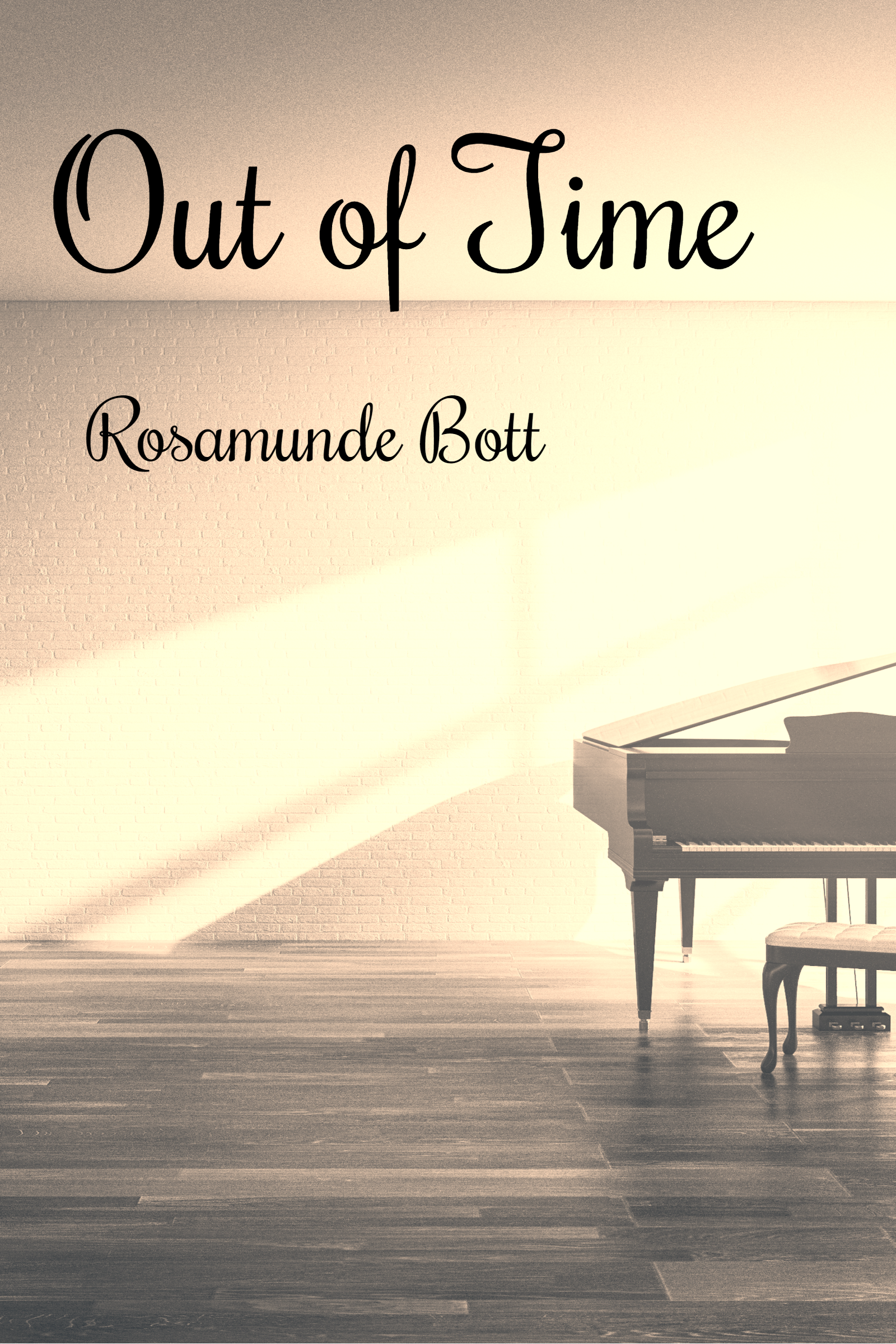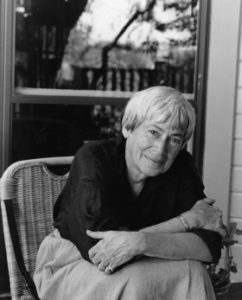
Enter your email address to get your free copy. You will also be added to my Readers' Group where you will find out more about my books, and be updated on upcoming publications (you can unsubscribe whenever you want).
(I value your privacy and will never spam you)
 Earlier this year one of the greats of literature, Ursula Le Guin, died at her home in Oregon at the age of 88. I pointedly describe her as ‘one of the greats of literature’, because too often – as she herself would argue – we equate great literature with realism and relegate fantasy and science fiction to a lower form of fiction. Yet, the fantasy and science fiction genres have produced some of the greatest novels of our time. Where would we be without Tolkien, C.S. Lewis, Ray Bradbury, H. G. Wells, Bram Stoker, and many, many others, including, of course, Ursula Le Guin?
Earlier this year one of the greats of literature, Ursula Le Guin, died at her home in Oregon at the age of 88. I pointedly describe her as ‘one of the greats of literature’, because too often – as she herself would argue – we equate great literature with realism and relegate fantasy and science fiction to a lower form of fiction. Yet, the fantasy and science fiction genres have produced some of the greatest novels of our time. Where would we be without Tolkien, C.S. Lewis, Ray Bradbury, H. G. Wells, Bram Stoker, and many, many others, including, of course, Ursula Le Guin?
In 2016, Le Guin said in an interview with the Guardian: ‘Realism is a genre – a very rich one, that gave us and continues to give us lots of great fiction, but by making that one genre the standard of quality, by limiting literature to it, we were leaving too much serious writing out of serious consideration. Too many imaginative babies were going out with the bathwater. Too many critics and teachers ignored – were ignorant of – any kind of fiction but realism.’
I agree. Why is it that fantasy and science fiction are so denigrated – and for those who enjoy them, a ‘guilty pleasure’? When J. R. R. Tolkien was writing The Lord of the Rings, most of his friends laughed at him writing adult fiction about hobbits, elves, wizards and dwarves, believing this kind of fiction should be limited to children’s fiction – and as such, of little importance (wrong on both counts, I think!). Only his best friend, C. S. Lewis, encouraged him and believed in what he was doing. Thank goodness. In fact, if it wasn’t for Lewis, we may never have had Lord of the Rings.
Read this quote from The Return of the King, and I defy you not to be moved by its imagery and simplistic beauty:
And all the host laughed and wept, and in the midst of their merriment and tears the clear voice of the minstrel rose like silver and gold, and all men were hushed. And he sang to them, now in the Elven-tongue, now in the speech of the West, until their hearts, wounded with sweet words, overflowed, and their joy was like swords, and they passed in thought out to regions where pain and delight flow together and tears are the very wine of blessedness.
In this epic trilogy, Tolkien explores some of the most profound human emotions and conditions: friendship and companionship, courage, despair and hope, the achievement of goals against all odds, and by exploring them outside of the usual realistic setting, we get to experience them on a deeper and more meaningful level.
A novel about these things set in a realistic world may be a great novel, but it will feel more mundane, and not quite as inspiring. We may not have to fight orcs or travel through dangerous terrain in our every-day lives, but symbolically we often do have to find the courage to face dark times and find friends and companions to see us through those dark times. Applying Tolkienesque symbolism to those feelings can help us feel more inspired.
Fantasy allows the writer to express ideas or explore situations that may not exist in our world but are nevertheless important in stretching our imaginations and challenging rigid outlooks. By taking us into a different set of social norms and behaviours, we can view our own social restrictions in an objective way, which inspires us to step outside of those norms to visualise a possible future.
Fantasy allows the writer to express ideas or explore situations that may not exist in our world but are nevertheless important in stretching our imaginations and challenging rigid outlooks.
For example, in Ursula Le Guin’s Left Hand of Darkness she explores a world in which all the people in it are androgynous. By using this setting, she is able to comment on how sex and gender impact on society, the nature of equality and relationships. Written in the 1960s, it was an important work that was part of the process in changing perceptions about men and women.
It is also beautifully written. There are many passages that explore beliefs, gender, relationships, philosophy, and so on, but this is one of my favourites:
To be an atheist is to maintain God. His existence or his non existence, it amounts to much the same, on the plane of proof. Thus proof is a word not often used among the Handdarata, who have chosen not to treat God as a fact, subject either to proof or to belief: and they have broken the circle, and go free.
To learn which questions are unanswerable, and not to answer them: this skill is most needful in times of stress and darkness.
There are also some beautiful passages that describe the relationship between the central character and the exile he journeys with in the last chapters of the book.
But it was from the difference between us, not from the affinities and likenesses, but from the difference, that that love came: and it was itself the bridge, the only bridge, across what divided us. For us to meet sexually would be for us to meet once more as aliens. We had touched, in the only way we could touch. We left it at that. I do not know if we were right.
It is a profound novel. When I finished it, I was left almost breathless with the sense that I had read something incredibly important and life changing. As all good novels should, it raised questions, challenged perceptions and enriched my view of my own world via this fantasy world.
I first read Le Guin when I was a teenager and my brother bought me a copy of The Wizard of Earthsea, which I absolutely loved. I read The Left Hand of Darkness about two years ago. I now intend to read more.
While I read a wide range of genres, very few novels have the power to strongly move or inspire me as much as those in the fantasy, supernatural or science fiction genres – from The Lion, the Witch and the Wardrobe to Dracula. If I analyse that, I think it is because we are able to experience the events, characters and themes in a purer way than the realistic novel because we are not bound by the ties of the every-day mundane.
It’s about time that we took the stigma of male geekdom out of the fantasy and science fiction genres. They are for all of us – written and read by men and women who wish to enrich and make a difference in the world of the real.